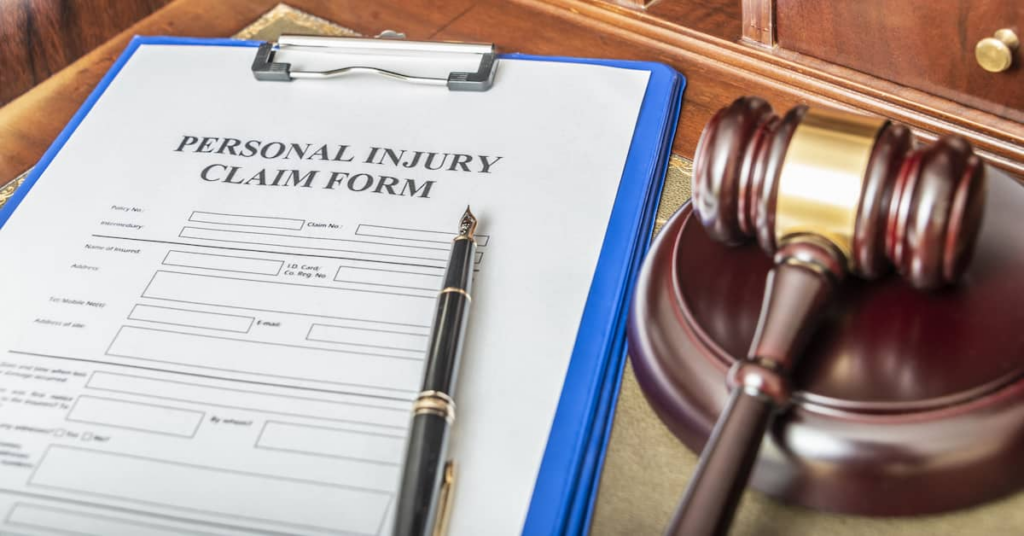
Personal injury claims may originate from a number of different circumstances. You may be injured in a car accident, slip and fall on an unsafe property, suffer harm due to medical negligence, and more.
These are just a few of the situations that commonly give rise to personal injury cases. A Connecticut personal injury attorney can pursue the compensation you deserve if you were hurt through no fault of your own.
However, before getting started on your claim, it is important to know the process that is generally involved. Most personal injury cases consist of the following steps:
1. Hiring a Personal Injury Lawyer
There is no legal requirement for you to have an attorney handle your personal injury case. However, hiring a lawyer is in your best interest if you have suffered a serious or catastrophic injury.
Life-altering accidents and injuries demand knowledgeable legal support and guidance. It is important to hire a Connecticut personal injury attorney who is well-versed not only in the type of injuries you have sustained but the specific type of negligence or wrongdoing that caused you harm.
2. Investigation
The first step your personal injury lawyer will take is to investigate the accident. Your attorney’s goals during the investigation will include:
- Determining what caused the accident that led to your injury
- Identifying who is responsible
- Reviewing your medical records to understand the impact of your injuries and how they affect your life, your ability to work, etc.
- Gathering evidence to support your personal injury claim
- Consulting expert witnesses about causation, liability, damages, and other issues
A comprehensive investigation will determine your right to bring a personal injury claim, as well as who is liable for your injuries and damages. Your personal injury attorney can also calculate the losses in your case based on the available evidence and expert testimony.
3. Issuing a Demand Letter
Most people assume that it is necessary to sue in order to recover compensation for personal injury. In reality, though, most personal injury claims are resolved through informal settlement negotiations.
To get settlement talks underway, your attorney will send what is known as a demand letter to the defendant (or, more likely, the defendant’s insurance company). A demand letter includes the following:
- A summary of the accident or event that led to your injuries
- Details of the injuries and other harm you have suffered
- A statement of complaint against the defendant (i.e., the party or parties responsible)
- Applicable statutes under which you are entitled to compensation
- The compensation you are seeking
After receiving the demand letter, the insurer may offer to settle your case. However, the settlement offer is likely to be much lower than what you demand (or nothing at all, if liability is disputed).
4. Negotiating a Personal Injury Settlement
Having an advocate who can capably represent you in insurance negotiations is one of the most important reasons to hire a personal injury attorney. Insurance companies often take advantage of those who try to represent themselves.
Your lawyer will handle all communications with the other side on your behalf. A Connecticut personal injury attorney will argue that you are entitled to maximum compensation (i.e., the insurance policy limit) based on the evidence, as well as counter arguments from the insurance company that you were partly at fault.
Settlement negotiations take time, with most personal injury cases settling anywhere from within a few months to up to 1 year. It is crucial to be patient throughout this process; you do not want to accept a low settlement offer only to find out that the amount does not cover your current and future expenses.
5. Filing a Personal Injury Lawsuit
If settlement negotiations with the insurance company do not move forward, it may be necessary to file a lawsuit. This marks the beginning of the litigation phase of a personal injury claim that may ultimately result in the case going to trial.
Your personal injury lawyer will draft and submit a complaint and civil summons (a document notifying the court and the defendant(s) of your lawsuit) with the appropriate court. The judicial district in which your lawsuit is filed is governed by Connecticut General Statutes § 51-345. A Connecticut personal injury attorney who knows the local courts can determine where your lawsuit should be filed and handle the paperwork on your behalf.
After the lawsuit is filed with the court, the defendant(s) in your personal injury case will be served the complaint and summons. Filing a personal injury lawsuit shows that you are “serious,” and settlement negotiations may resume. However, it is important not to count on a pre-trial settlement and be ready to go to court.
6. Preparing for Trial
Trial preparation is a lengthy, intensive process. Although it may be a year or two before the trial begins, it is crucial for your personal injury attorney to start preparing your case immediately.
The discovery process represents the core of preparing a personal injury case for trial. Discovery involves the following:
- Submitting written questions (interrogatories) to the other side
- Requesting the defense to produce documents and other relevant evidence
- Presenting the defense with requests for admission (allegations that the party or parties must formally admit or deny)
- Holding depositions where the parties involved and/or any witnesses provide testimony
A Connecticut personal injury attorney can handle discovery and all other aspects of trial preparation on your behalf. This includes pretrial motions, ongoing settlement negotiations, and more.
Personal injury cases can be settled prior to trial at a settlement conference (a meeting between the parties and their legal counsel in the presence of a judge) or through alternative dispute resolution (such as mediation or arbitration). Your lawyer can advise you what is involved in these proceedings and whether they may be a part of resolving your case.
7. Going to Trial
Proceeding all the way to trial for a personal injury case is fairly uncommon. Nonetheless, it is crucial to hire a personal injury attorney who is willing and able to represent you in court if a settlement cannot be reached.
Your lawyer will present your case in court (i.e., introduce evidence, call witnesses, etc.) before a judge or jury. The goal at this stage is to make a compelling argument to maximize your award.
Going to trial is a daunting prospect, and plaintiffs, defendants, and insurance companies alike will generally try to avoid having a case reach this point. Trial preparation requires a significant investment of time, resources, and money, and there is no guarantee of success at trial. However, hiring an experienced trial attorney is essential if going to court is your only option for recovering the personal injury compensation you deserve.
Contact a Connecticut Personal Injury Attorney Today
No two personal injury claims are exactly alike. By the same token, personal injury lawyers and law firms are not all the same.
You need a law firm that is committed to providing quality legal representation and support at every stage of your claim. Attorneys at The Flood Law Firm handle all types of personal injury cases, and we go the extra mile (including filing a lawsuit and going to trial as needed) to achieve the outcome you deserve.
Our results speak for themselves. We pursue compensation with an emphasis on maximizing your well-being and meeting your long-term needs in the aftermath of an accident.
For a free case review, please call The Flood Law Firm at (860) 346-2695 today. Our Connecticut personal injury attorneys serve clients statewide from offices in Middletown, Danbury, Waterbury, and Bridgeport.
